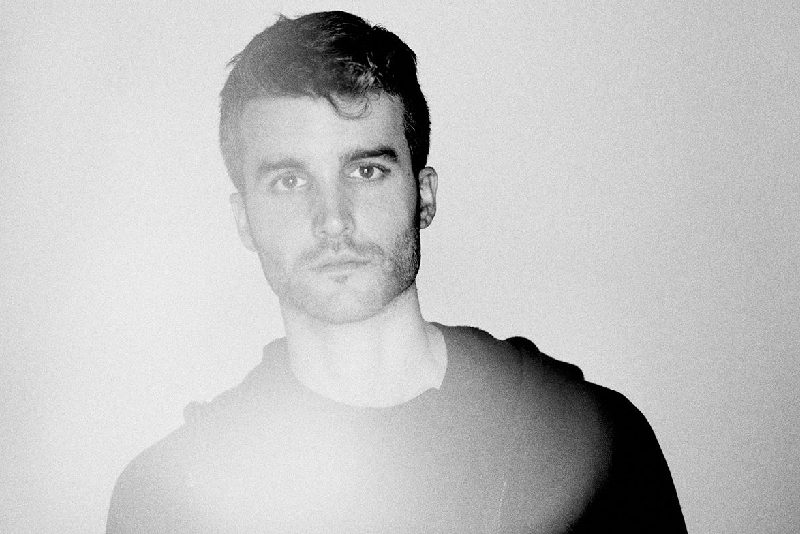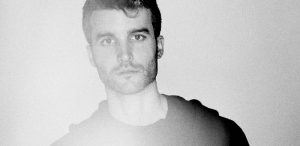Having made headway in the world of film composition, London-based pianist and composer Nico Casal has broadened his musical outlook, developing into a composer whose work stands alone. With his debut album forthcoming, the intuitive performer is preparing for a UK tour, which sees him come to Band on the Wall on 31st March 2019. With an exciting and significant year on the cards, we spoke to Nico about his early years and formative influences, developing appreciation for electronic music and approach to composing for moving image.
At what age did you begin playing the piano? Do you remember the characteristics of the first piano you played and what it was that drew you to the instrument?
Nico Casal: ‘I think I started to play around with a little keyboard I had in my room when I was 6, according to my parents (of course I don’t remember it!) I used to spend quite a lot of time trying to play by ear the melodies I was hearing on TV. A couple of years later, when I was 8, they enrolled me at the local music school and I will be always thankful for that. Funny enough I still keep that keyboard in the same room at my parents! Although the pre-recorded tunes the keyboard came with were too fun for me at that age’.
Although you’re developing your craft away from film soundtracks, you’ve had some great success scoring motion pictures. Can you tell us about your working methods and mindset when it comes to scoring films and how you achieve synchronicity between the music and visual, to make the finished cut impactful?
NC: ‘I would say improvisation is the best way I know when I have to approach a new project, both personal ones and scores for motion pictures. I think I started to improvise unconsciously just for fun when I started to practice piano. I discovered Keith Jarrett growing up and he would be one of the main influences I ever had. The very first time I had to approach a soundtrack (a student short film back in 2004) I went for the only thing I felt most comfortable with, improvising, but watching the scenes now at the same time in front of me. I think that answers the second question, I usually spend quite a lot of time improvising on the piano watching the scene looped in front of me until I’m starting to like the structure, melodies, harmonies… and then I stop and work on that idea properly. But it depends on the day, sometimes I spend three hours and I’m not productive at all, and something 15 minutes is more than enough to get an idea to start with.’
The piano Keith Jarrett used on his famous Köln Concert was a practice piano littered with technical issues, yet he was able to respond to its flaws and create astonishing music. What are your thoughts on how Jarrett plays and how imperfection colours the music we love?
NC: ‘I find the story of that piano absolutely incredible. It’s crazy to think he would have done something different on a better piano but I believe there is the magic of all this. I love Keith Jarrett’s approach regarding the “here and now”. The outcome after going on stage and improvising for two hours will depend on how he feels that day and I love that idea. While I’m developing a new project, improvising or even performing, I tend to see the imperfections as something I like to consider and (unless they are too wild) to embrace them’.
Through your cover of Jon Hopkins’ Singularity and your new composition Novo, we’re able to appreciate how electronic music influences your work. Can you explain how electronic music has informed your approach to composition and which electronic artists have had the greatest impact upon you as an artist?
NC: ‘After spending most of my life on a classical music environment, I got into electronic music quite late, specifically when I moved to London. I grew up in a very small city called Santiago so London gave me the massive opportunity to discover new artists and new music and I think I made the most of it. Adding all those new influences to the projects I was working on at that time felt quite a natural process. It helped me to work out of my comfort zone and became more experimental and I started to use synths and new sounds. During those years I discovered Nils Frahm and Olafur Arnalds (among others) and I became fan of artists like Jon Hopkins, Moderat, Four Tet, Rival Consoles, James Blake.’
Ready to Talk is an astonishing piece of music. Where did you record the track and how ‘hands on’ were you in terms of arrangement and production?
NC: ‘Thanks a lot for your kind words. Ready to Talk came up after improvising around its main harmonic progression for a few days. For the demo, I used a fairly bad mic and a second-hand piano I had bought recently for my room. On top of that, I did some MIDI cellos and I recorded some synths and an old and broken organ I bought from a friend of mine, to add an extra depth. At that point I wasn’t even considering showing the piece to anyone and it was only months later when we had to re-record everything I decided to keep the original synths, organ sounds and the exact original piano improvisation. I guess I was trying to keep the original vibe of that day in my room.’
We’ve heard that you have an album in the pipeline and plans for some future film work. What can you tell us about your musical plans for 2019, and beyond music, is there anything else you hope to achieve this year?
NC: ‘2019 is going to be a very important year in my life since I’m releasing my debut album Alone and I’ll be performing it live, so I can’t imagine right now what else I would like to achieve, that sounds a lot to me and I feel very grateful! This would have sounded crazy a year ago, so it’s still a bit hard to believe, but I’m enjoying the experience a lot and I’m looking forward to releasing it!’



